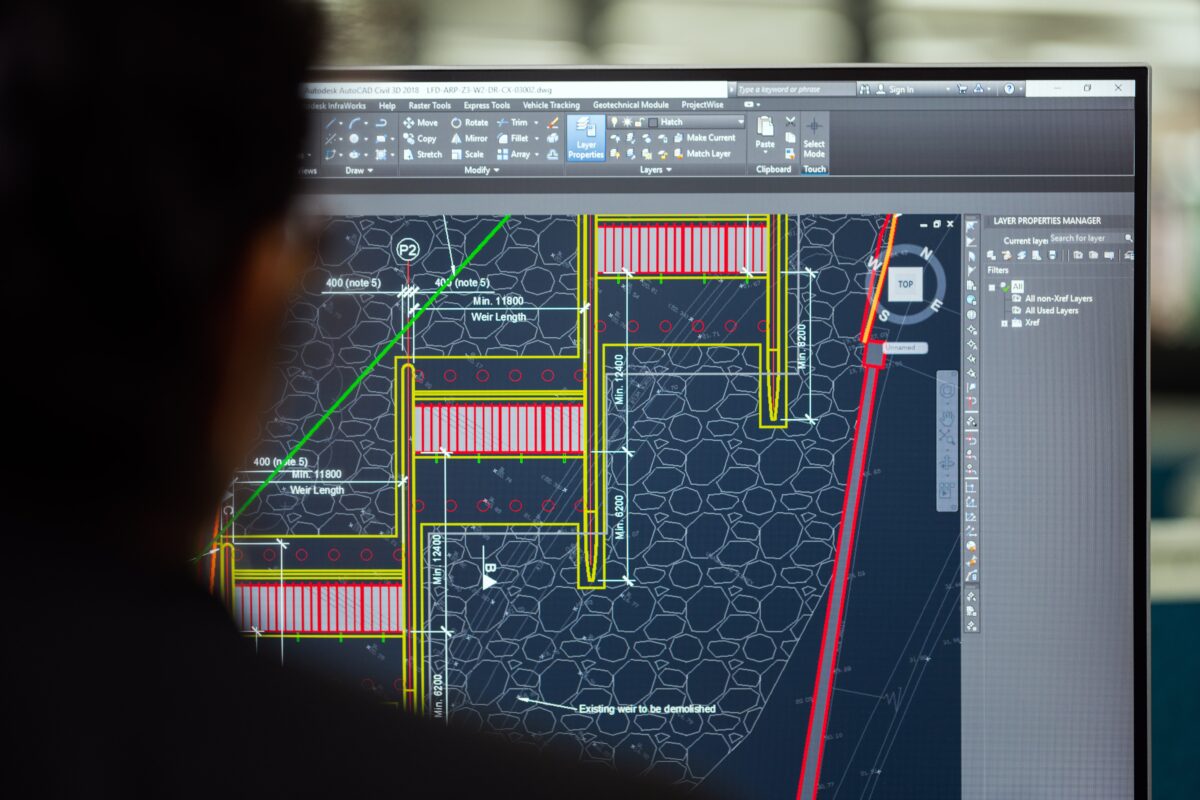
How to Successfully Interview and Secure a Civil Engineering Job
November 3, 2022
Civil engineering is one of the fastest growing STEM careers currently. The Bureau of Labor Statistics has estimated that over the next 10 years, civil engineering jobs will grow by nearly 7%, which is around 310,000 jobs per year.
Job interviewing can be stressful, but it does not have to be when you have all the right tools. Read below to learn more on how to land your next civil engineering job.
Dress Professionally
While it is very important to impress hiring managers with your work experience and qualifications, it is also necessary to make sure that you properly dress the part for your interview.
Zippia found that 50% of hiring managers believe that the way a candidate dresses during an interview should determine if they will move on to the next steps of the interview process.
When attending an interview, consider dressing in business professional clothes. Avoid wearing flashy clothes and make sure your outfit is not wrinkled or stained. Dressing professionally will convey to the hiring manager that you took time and put in effort, ultimately showing that you are interested in the job.
Seem Interested and Be Direct
If you show up wearing nice clothes and have an impressive degree, but do not have a positive attitude during the interview, you may be eliminated from the hiring process.
When answering questions, be enthusiastic and interested in what the hiring manager is saying to you. Also, directly answer the questions you are being asked. In civil engineering, many of the tasks that you will be doing revolve around directly solving a specific problem or working on a complex design. Showing a trait of being direct during the interview may help you stand out from other candidates.
For example, if you are asked about a project that gave you difficulty and how you overcame it, do not try to sugarcoat the problem. Describe exactly what the problem was, and how you took the initiative to work it out with yourself and your team. Discuss any items that worked well, and things that maybe could’ve been better. This will show that you are a problem solver and a team player when faced with adversity and can handle the challenges that come with a career in civil engineering.
Example Interview Questions
A great way to prepare for interviews is to practice possible interview questions beforehand. When you practice answering questions, you may be able to go into the interview more confident and well-equipped compared to other applicants.
During the interview you will most likely be asked general questions about previous work experience, what your desired salary range and more. There will also be specific questions that will relate directly to the civil engineering field that you should be ready to answer.
Here are examples of questions you may be asked:
- Why did you decide to become a civil engineer?
- What projects you have worked on?
- What design tools do you have experience with?
- Explain a time when a project went differently than expected.
- When starting a project, what are some of the first things you do?
When preparing for an interview, it is best to over-prepare. Consider practicing answering questions about your skills and experience, situational-based questions and questions that test your knowledge of specific civil engineering practices.
Ask Your Interviewer Questions
Interviewing for a civil engineering job not only involves you being asked questions, but it is also an opportunity to ask the hiring manager questions so you have a better understanding if the organization is the right fit for you. Additionally, asking questions to your interviewer can show that you have researched the position and are overall interested in the role.
Civil engineers can work in a variety of industries and on a variety of projects. Because of this, you should be thoughtful of the questions you ask and utilize this time to get a better understanding of the job’s daily duties.
Here are some questions you could ask your interviewer:
- What type of structures will I be working on?
- Will I be working on-site or in the office?
- What type of software will I be required to use?
- How much group work will need to be completed?
These questions can give you a good sense of the type of work you will be completing and what setting they will need to be completed in.
Expect Multiple Interviews
Civil engineers can design a wide array of products like bridges, buildings, water systems and other important infrastructure that many people rely on for daily use. With designing such crucial products, employers want to make sure they are hiring the perfect candidate to avoid any type of mishaps or mistakes.
Due to this need of excellent workers, do not be surprised if your hiring process contains multiple different interviews. According to Career Sidekick, the average employer will conduct between 2-3 interviews with a candidate before an official offer is made to them.
If your hiring process is more than one interview, it is likely that you will be meeting with multiple managers and employees of the organization throughout the different rounds. Meeting with different people allows the hiring manager to get a better understanding on how you interact with others and will allow for more feedback to make sure you are the best choice for the job.
—
Looking for your next civil engineering job? Check out STEMHUNTER, a job board designed specifically for STEM professionals.



